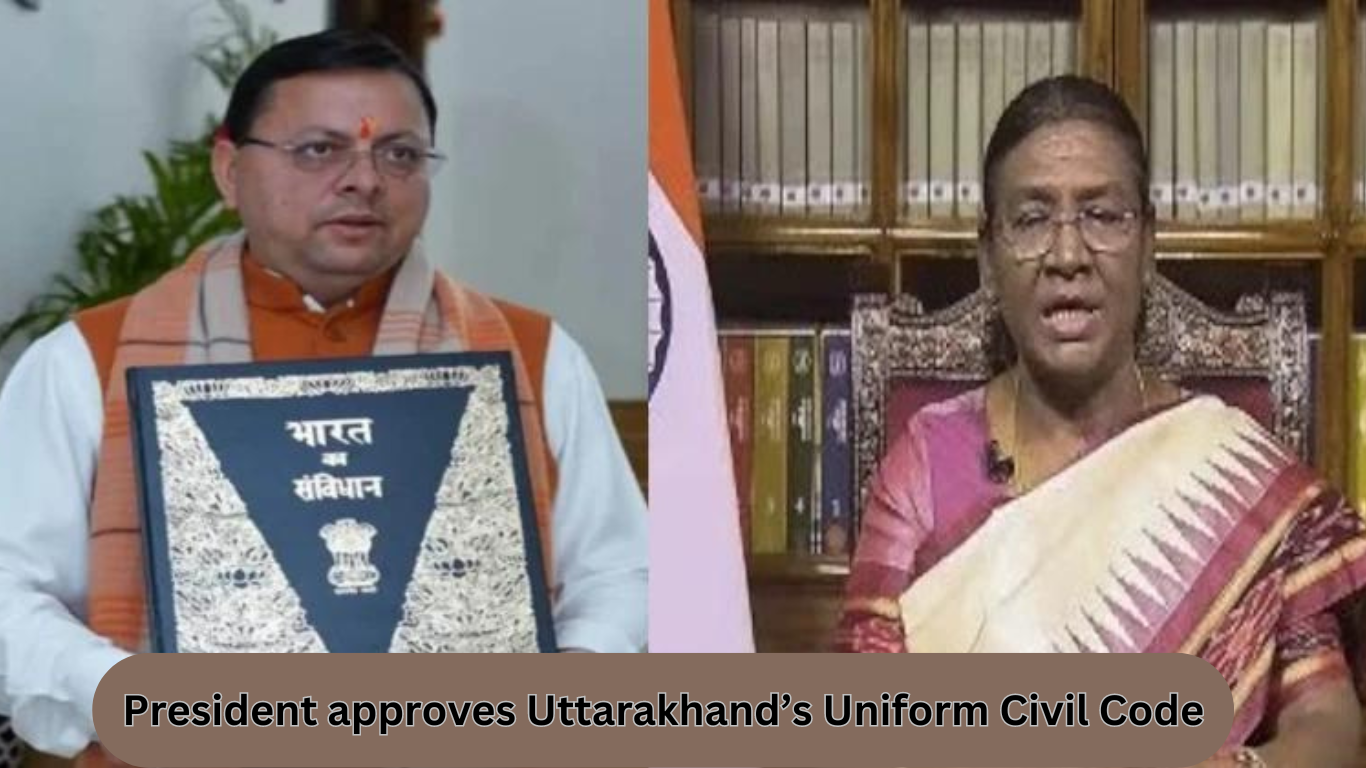Table of Content
▲
President Droupadi Murmu's approval on March 11, 2024, marked Uttarakhand as the first state in Independent India to enact a Uniform Civil Code (UCC).
The Uttarakhand State Assembly passed the UCC Bill, 2024 on February 7, 2024, ensuring equal rights in property and inheritance for women. The bill also prohibits practices such as Halala, Iddat, and Talaq as per the Muslim Personal Law.
In India, the succession rights of women vary significantly depending on their religious beliefs under different governing laws. For example, Hindu daughters have equal rights to their father's property under the Hindu Succession Act, whereas Muslim daughters' share is half that of sons under the Muslim Personal Law.
On February 28, the bill, which mandates the registration of live-in relationships, received approval from the state Lieutenant-Governor and was awaiting the President's assent. The law's provisions apply not only to residents of Uttarakhand but also to those living outside the state, with Scheduled Tribes being exempt from this provision.
Uttarakhand Chief Minister Pushkar Singh Dhami expressed his delight and pride in a social media post, highlighting the significance of the UCC in promoting social equality and curbing the oppression of women. He emphasized that the implementation of the UCC would foster harmony and equality among citizens in the state.







_1771410929.webp)
Ans 1. With changing times, the need has arisen for having a Common Civil Code for all citizens, irrespective of religion, ensuring that their fundamental and Constitutional rights are protected. Even Secularism and National Integrity can also be strengthened by introducing UCC
Ans 2. Uttarakhand has become the first State in independent India to implement a Uniform Civil Code (UCC). The move, coming two months ahead of the Lok Sabha election, is part of the Sangh Parivar's ideological agenda, after the abrogation of Article 370 in Jammu and Kashmir, and the construction of a Ram temple in Ayodhya.
Ans 3. Social Unrest: Practices related to personal matters are deeply rooted in the religious and cultural identities of various communities in India. Implementing a uniform civil code might mean forcing them to relinquish their identities and could lead to social unrest and communal tensions.
Ans 4. The Uniform Civil Code is a proposal in India to formulate and implement personal laws of citizens which apply on all citizens equally regardless of their religion. Currently, personal laws of various communities are governed by their religious scriptures.[1] Implementation of a uniform civil code across the nation is one of the contentious promises pursued by India's ruling Bharatiya Janata Party. Personal laws cover marriage, divorce, inheritance, adoption and maintenance. While Articles 25-28 of the Indian Constitution guarantee religious freedom to Indian citizens and allow religious groups to maintain their own affairs, Article 44 of the constitution expects the Indian state to apply directive principles and common law for all Indian citizens while formulating national policies.
Ans 5. Violation of fundamental right of religious freedom- Critics argue that the UCC infringes upon the right to religious freedom provided by Article 25 of the constitution. Also, UCC infringes upon the right of communities to preserve their distinct culture granted by Article 29 of the constitution.